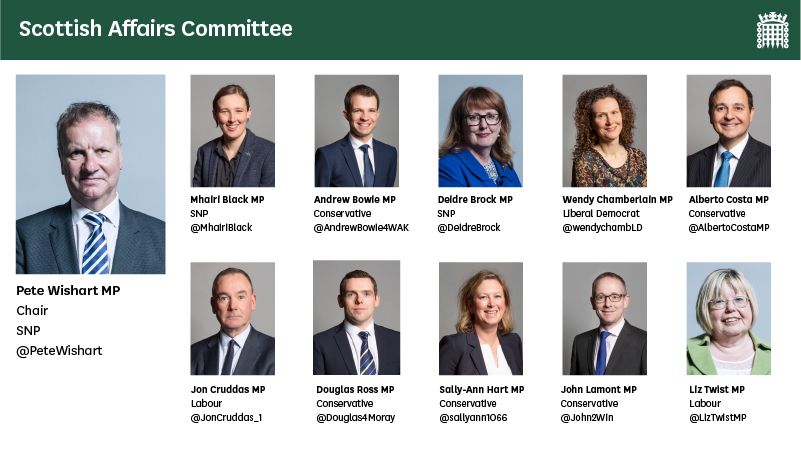Welfare policy
in Scotland
The coronavirus crisis has further highlighted the importance of a strong welfare system.
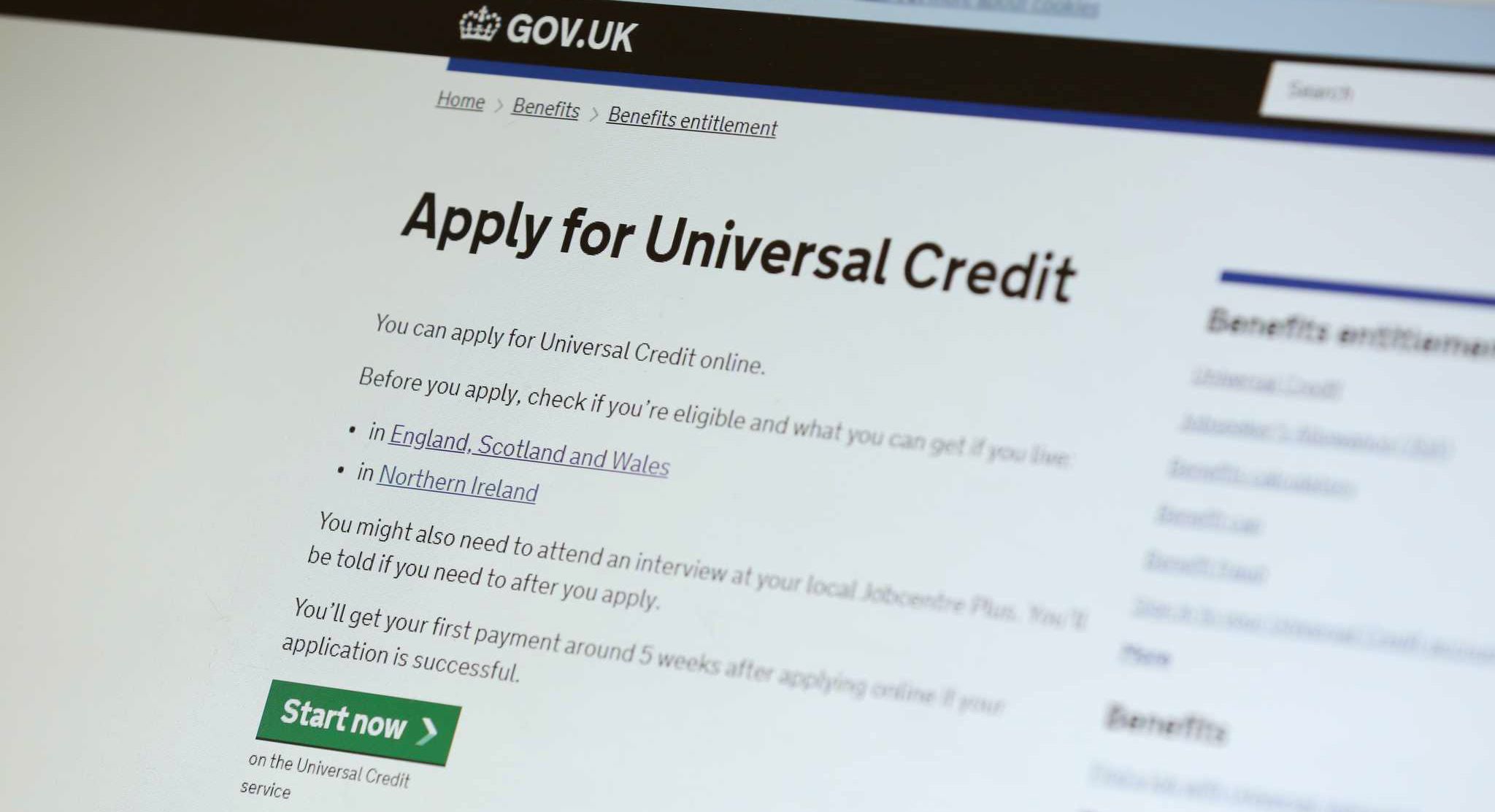
The coronavirus pandemic has seen many people in Scotland turn to the welfare system. This system has undergone a series of reforms in recent years, including the roll out of Universal Credit and the devolution of welfare powers to the Scottish Government.
Our inquiry into welfare policy in Scotland investigated the benefits system to see if it works for the people of Scotland.
This is what we, MPs on the Scottish Affairs Committee, found out.
The benefits system in Scotland

How does welfare policy work in Scotland?
The Scotland Act 2016 devolved significant new welfare powers to the Scottish Parliament including responsibility for:
- disability and carers’ benefits
- benefits for maternity, funeral and heating expenses
- powers to vary the housing cost element of Universal Credit and Universal Credit payment arrangements.
The Scottish Parliament has the power to determine the structure and value of these benefits, or replace these existing benefits with new benefits, in line with welfare policy frameworks.
Our inquiry also highlighted evidence of different approaches adopted by the UK and Scottish governments.
For example, the Scottish Government prefer to use the term 'social security' rather than 'welfare' and both governments work to different charters to deliver support to those who need it.
But we found these differences were not jeopardising the devolution of welfare to Scotland.
What you told us

As well as speaking to different charities, organisations, and representatives from the UK and Scottish governments, we also ran a survey asking for people's first-hand experience of the benefits system in Scotland.
Here is some of what we heard.
1. The majority of respondents found the process of applying for benefits difficult.
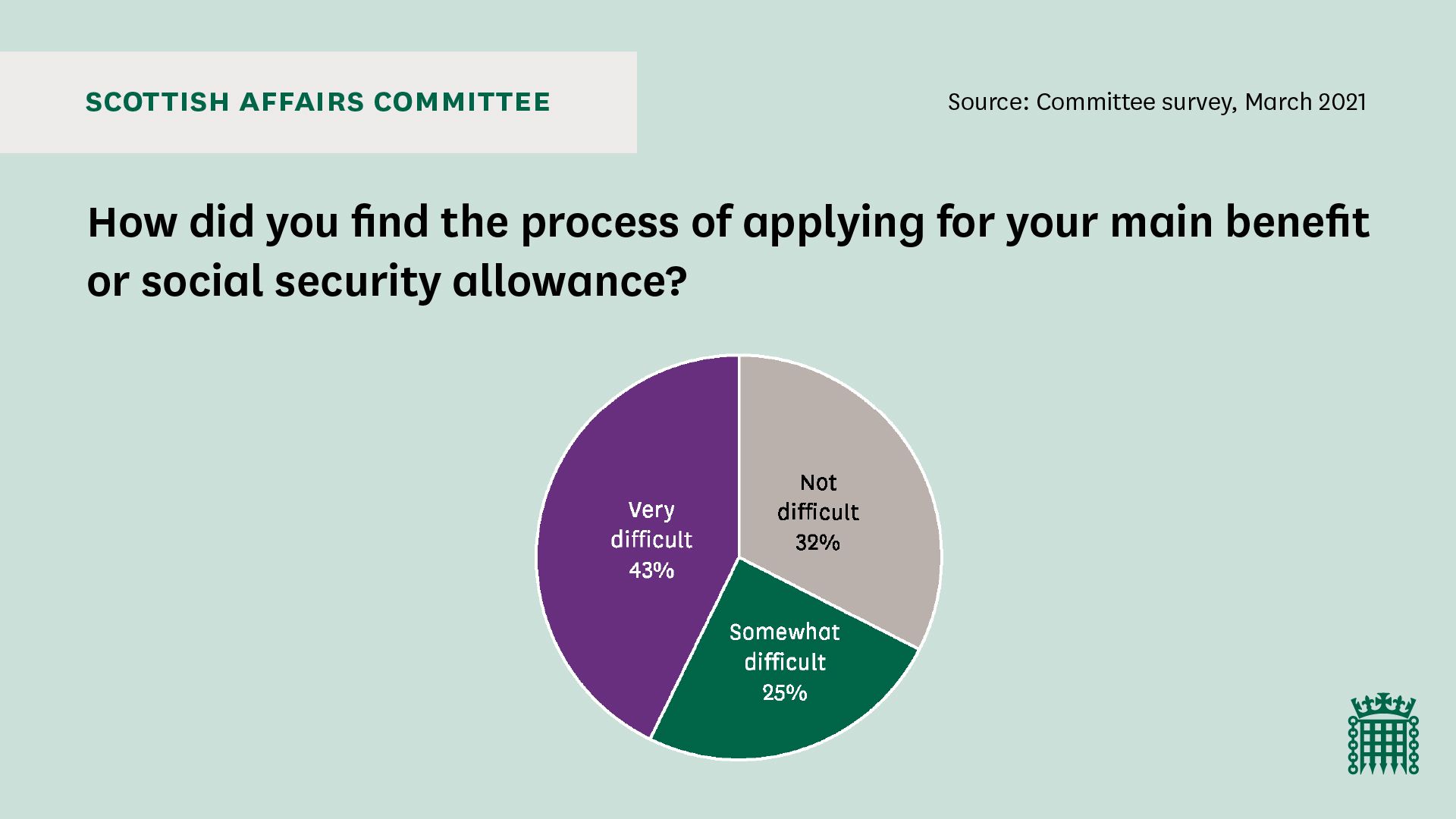
Although some respondents said they had a good experience with the social security system, the majority of people highlighted that they found it difficult to access and that this had led to anxiety for the people attempting to claim benefits.
“The stress, uncertainty and fear is unbearable and constant and getting worse.”
We recommend that there should be an improvement of communications to claimants on what measures are available to them and a review of how Jobcentres work in Scotland (with a particular look into how they convey information on devolved benefits to claimants).
We are also keen to see a ‘no wrong door policy’ being adopted in Scotland (whereby if someone approaches the wrong agency for their claim, that agency can help sign-post and pass on the information to the correct organisation).
2. The majority of respondents didn’t believe their benefits would cover their basic costs of living.
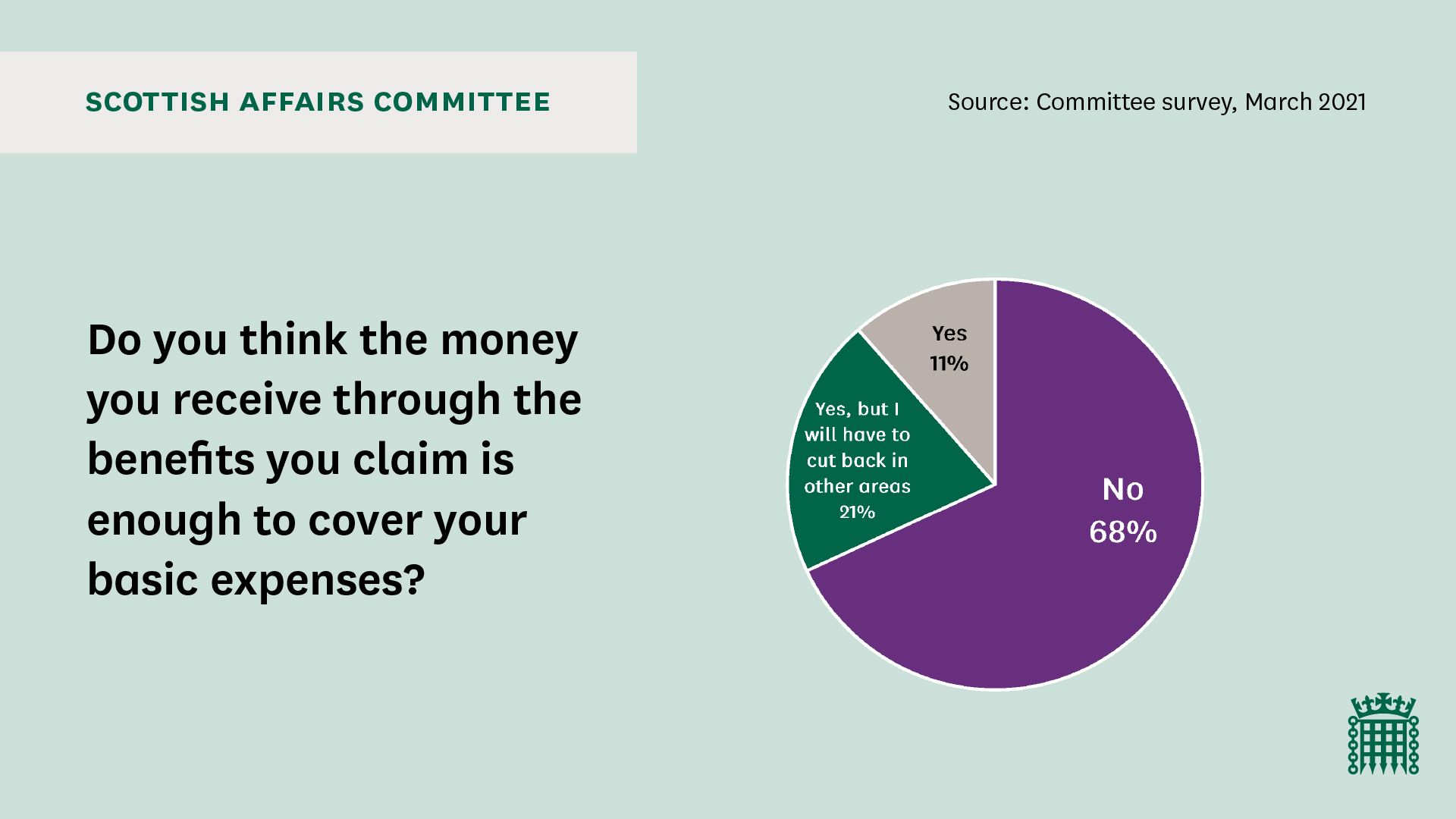
Most of the people who answered the survey (113/191 respondents) felt that the money they received on social security would not cover their bills for rent, food, internet, council tax and utilities.
“I'm struggling to eat properly, can't afford to heat my home, and I've accumulated debt in my gas bills.”
We received a wealth of evidence, as part of our inquiry, which said that the payment award for Universal Credit claimants is not enough to tackle poverty in Scotland and also provide claimants with a stable support base from which they can access the job market.
We welcome the extension of the £20 uplift until September and note the positive effect this has had throughout the pandemic.
3. The majority of people on Universal Credit are not aware of the Scottish Choices options.
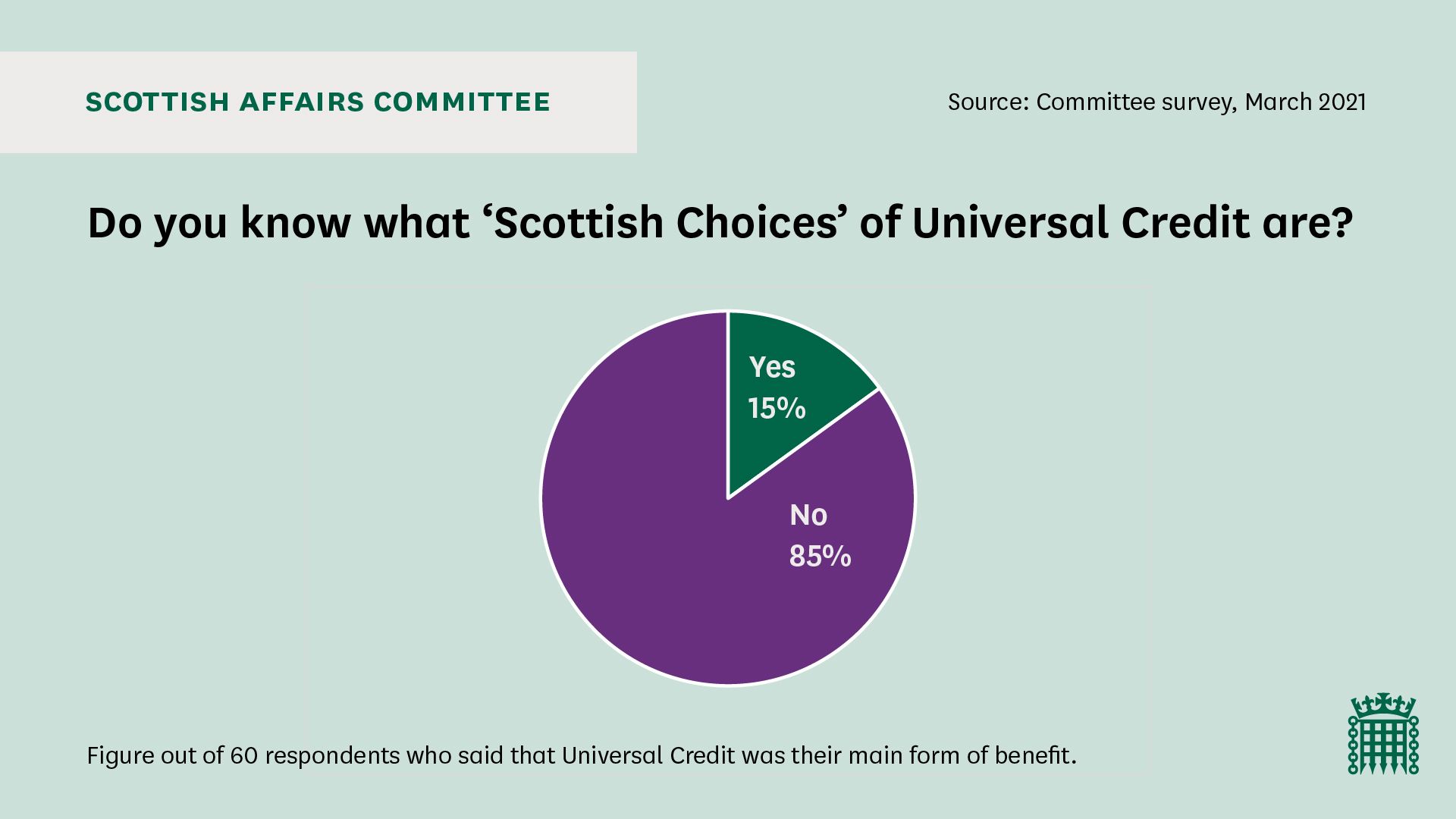
The Scotland Act 2016 gave the Scottish Government the opportunity to make changes to the administration of Universal Credit to claimants in Scotland.
While the UK's Department for Work and Pensions (DWP) still controls Universal Credit payments, with Scottish Choices there are more options available such as:
- twice-monthly payments, whereby Universal Credit is paid twice a month (may not necessarily be every 2 weeks) rather than monthly
- direct payments, whereby claimants can opt for their rent to be deducted from their Universal Credit and paid directly to their landlord.
The majority of the survey respondents said they claimed Universal Credit. Despite Scottish Choices being an option for all of these people, only nine people said they knew what they were.
We recommend that the Scottish Government and the DWP should better advertise the availability of Scottish Choices through the initial online claim process. This can be through the Citizens Advice Scotland Help to Claim service, and through the first meeting with the work coach.
Four recommendations to the UK Government
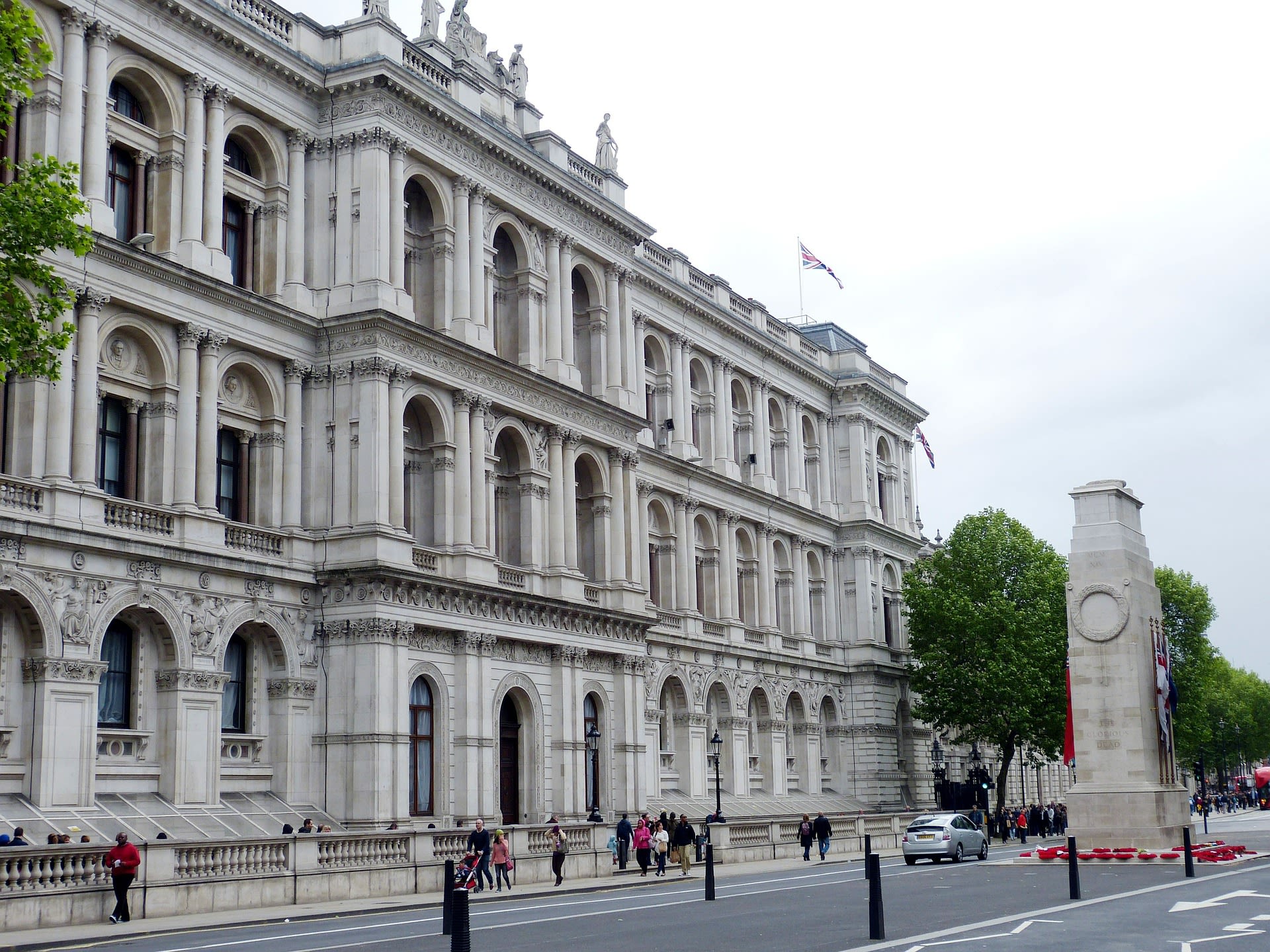
1. Improve Scottish Child Payments through data sharing by the Department for Work and Pensions

The Department for Work and Pensions should prioritise delivering the data of 6-16 year olds required by the Scottish Government, or work with the Scottish Government to find an alternative type of data, so that the Scottish Government are able to roll out the Scottish Child Payment for this age group.
2. The £20 uplift for Universal Credit should be reviewed before it ends in September 2021

We recommend that the UK Government closely review the issue of making the £20 uplift permanent, in the run up to the expiration of this policy at the end of September 2021.
The UK Government should again review whether this uplift should be extended and back dated to legacy benefit recipients.
3. Communications and guidance on benefits and welfare need to be improved

The Joint Ministerial Working Group should consider developing new communications materials and guidance in the form of a Scottish welfare service directory to be updated annually.
4. Sanctions should be paused for the rest of 2021.

Whilst the economy is in the midst of recovering from the covid-19 pandemic, now is not the right time to sanction claimants should they fail to meet their claimant commitment.
Reflecting on what witnesses told the Committee, we recommend pausing the sanctioning of claimants for at least the rest of 2021 with immediate effect.
What happens now?

We have made these recommendations to the Government.
The Government now has two months to respond to our report.
Our report, 'Welfare policy in Scotland', was published on 23 June 2021.
Detailed information from our inquiry can be found on our website.
If you need advice on benefits and social security services in Scotland, you can visit the Citizens Advice website.
If you’re interested in our work, you can find out more on the House of Commons Scottish Affairs Committee website. You can also follow our work on Twitter.
The Scottish Affairs Committee works together to scrutinise the expenditure, administration and policies of the Scotland Office, and its associated bodies. We also examine the wider UK Government, to assess policies and legislation that lead to direct impacts on Scotland.

Cover image credit: Gov.uk

